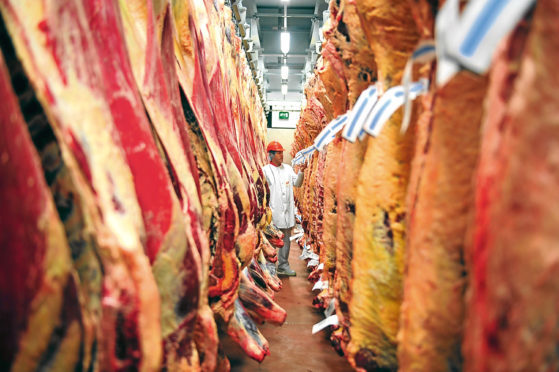A new project aims to boost returns for beef producers by improving the accuracy of abattoir carcase grading methods.
The three-year Optibeef project, which has received £1.7 million funding from UK Research and Innovation, also aims to create the first platform for integrating data from calf to carcase.
New technology involving 3D imaging and fat sensing will be used in abattoirs to provide a more accurate and detailed measurement of carcases and their components.
On-farm technologies will also be developed for whole-life monitoring of individual cattle. These include advanced 3D cameras, novel fat sensing, automated weighing and feed intake recording.
The lead partner in the project is HallMark Veterinary Compliance Services, which recently acquired the UK’s independent carcase classification business MLCSL from AHDB.
HallMark chairman Davie Peace said the current method of classifying carcases relied entirely on human judgment and it was becoming increasingly difficult to recruit and train enough staff for the job.
“So the development of automated classification technology, as a supplement to our current services, will allow us to maintain service levels to customers, with the objective of continual improvement,” he added.
“A dual approach embracing new technology will provide a robust way forward to meet industry challenges.”
He said the on-farm element of the project aimed to ensure livestock were arriving at the abattoir at the optimum point, thus reducing the number of animals failing to meet specifications at slaughter.
Other project partners include: Scotbeef; Scotland’s Rural College; Innovent Technology Limited; National Physical Laboratory; Harbro; Hectare Agritech; Ritchie Ltd; and Agri-EPI Centre.
